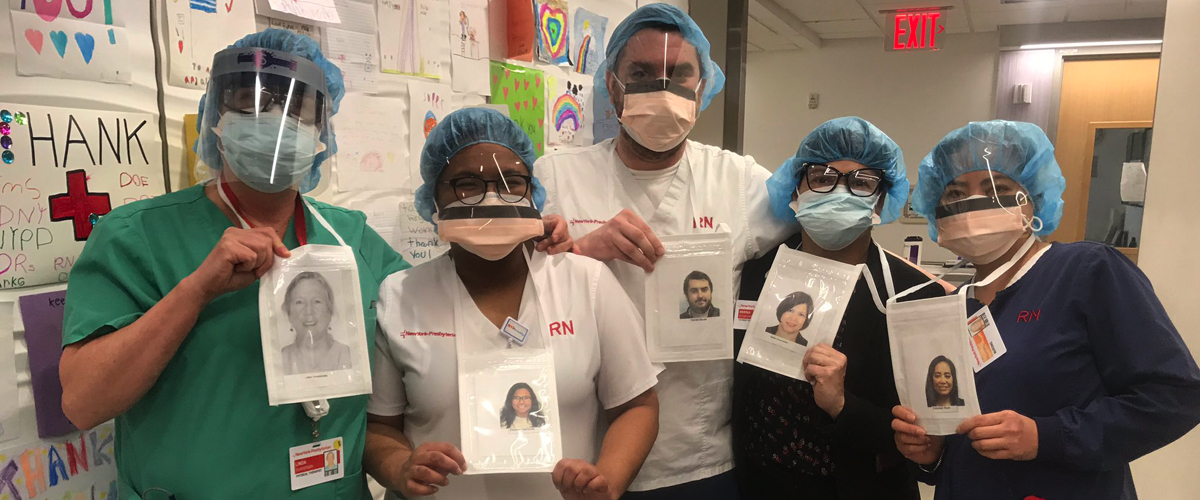Yes, it is mandatory to wear a mask when visiting a clinic. When visiting a clinic, it is important to prioritize safety by following the recommended guidelines.
Wearing a mask is essential for protecting yourself and others from potential airborne viruses or germs. By wearing a mask, you can minimize the risk of spreading or contracting infections within the clinic environment. The use of masks in healthcare settings has proven to be effective in reducing the transmission of respiratory droplets, which can carry contagions.
Additionally, wearing a mask not only safeguards the patients and healthcare workers but also contributes to maintaining a healthy and hygienic atmosphere within the clinic. Therefore, it is crucial to comply with the mask-wearing policy while visiting a clinic.
Contents
Mask Mandates At Clinics
Mask mandates at clinics have become a crucial aspect of keeping both patients and healthcare professionals safe in recent times. With the ongoing pandemic, it’s essential to understand the guidelines and requirements surrounding mask usage at medical facilities.
Overview Of Mask Mandates
Mask mandates at clinics refer to the rules and regulations implemented to ensure everyone entering healthcare facilities wear appropriate face coverings. These mandates are put in place as a preventive measure to limit the spread of respiratory illnesses, including COVID-19.
Health authorities, such as the World Health Organization (WHO) and the Centers for Disease Control and Prevention (CDC), have strongly recommended mask usage in healthcare settings. These recommendations are based on scientific evidence that respiratory droplets containing the virus can be spread through close contact or in the air when an infected person coughs, sneezes, talks, or breathes.
Guidelines For Mask Usage
Adhering to specific guidelines for mask usage is essential to ensure maximum effectiveness in mitigating the transmission of respiratory diseases. Here are some key guidelines to keep in mind:
- Choose the Right Mask: When visiting a clinic, it is important to wear a well-fitting mask that fully covers your nose, mouth, and chin. Opt for masks that offer a snug fit without restricting breathing.
- Use Medical-Grade Masks: Medical-grade masks, such as N95 respirators, are recommended for healthcare professionals who may come in close contact with COVID-19 patients. These masks provide a higher level of filtration and protection.
- Proper Mask Handling: It’s crucial to handle masks correctly to prevent contamination. Always wash or sanitize your hands before putting on or removing a mask. Avoid touching the mask’s front, and handle it only by the ear loops or ties.
- Regular Mask Replacement: Masks should be replaced regularly, especially if they become damp, soiled, or damaged. Disposable masks should be discarded after use, while reusable masks must be washed and dried properly.
- Combine Mask Usage with Other Precautions: While wearing a mask is important, it should not replace other preventive measures. Maintaining physical distancing, practicing good hand hygiene, and following clinic-specific protocols are equally vital in reducing the risk of infection.
By diligently following these guidelines, patients and healthcare professionals can contribute to a safer environment within clinics, minimizing the potential transmission of respiratory illnesses.

Credit: healthmatters.nyp.org
The Importance Of Wearing A Mask
Wearing a mask at the clinic is of utmost importance as it helps protect both yourself and those around you. In a medical setting, where various individuals converge, there is an increased risk of exposure to infectious diseases. By wearing a mask, you not only lower the likelihood of contracting an infection, but you also minimize the chance of spreading it to others.
One of the main reasons why wearing a mask is crucial is because it helps prevent the spread of infections. Diseases can easily be transmitted through respiratory droplets, especially when someone coughs or sneezes. The mask acts as a barrier, trapping these droplets and preventing them from being released into the air. This way, the risk of infecting others is significantly reduced.
It is important to note that the effectiveness of masks in preventing the spread of infections depends on several factors. The type of mask, proper usage, and adherence to other preventive measures, such as hand hygiene and social distancing, all play a role in ensuring the mask effectively reduces transmission. By wearing a mask correctly and consistently, you contribute to breaking the chain of infection and safeguarding the health of yourself and those around you.
Exceptions To Mask Requirements
Exceptions to mask requirements may vary at different clinics. It’s best to check with the clinic beforehand to determine if wearing a mask is necessary.
` In certain circumstances, individuals may be exempted from wearing a mask at the clinic. These exceptions pertain to both medical conditions and legal considerations. It’s important to understand these exceptions in order to ensure the safety and well-being of everyone involved. Here, we’ll discuss the different exceptions and provide valuable information regarding medical condition exemptions and legal considerations for wearing masks at the clinic. `Medical Condition Exemptions
` People with certain medical conditions may be exempted from wearing masks at the clinic. While it’s crucial to prioritize public health, it’s equally important to accommodate those who face challenges in mask-wearing due to their health circumstances. Here are a few medical conditions that may qualify for exemptions: 1. Respiratory Conditions: Individuals with respiratory issues like severe asthma or chronic obstructive pulmonary disease (COPD) may experience difficulty breathing while wearing a mask. However, it’s advisable to consult a healthcare professional for personalized guidance in managing their condition at the clinic. 2. Cognitive Impairment: Individuals with cognitive impairments or developmental disabilities may find it challenging to comprehend and conform to mask-wearing protocols. In such cases, alternative strategies, like face shields or reasonable accommodations, should be explored to ensure the safety and well-being of both the individual and others at the clinic. 3. Sensory Sensitivities: Individuals who have sensory sensitivities, such as autism spectrum disorder, may experience discomfort or distress caused by the sensation of wearing a mask. Working collaboratively with healthcare providers to explore alternative options can help create a safe and welcoming environment for everyone at the clinic. It’s important to emphasize that these exemptions are not meant to disregard the significance of mask-wearing in preventing the spread of infectious diseases, but rather to provide support for those facing genuine challenges due to their unique medical conditions. `Legal Considerations
` In addition to medical condition exemptions, certain legal considerations may exist that exempt individuals from wearing masks at the clinic. It’s essential to understand the legal framework and regulations surrounding mask requirements in your specific jurisdiction. Here are a few legal considerations that may exempt individuals from wearing masks: 1. Age Restrictions: Some jurisdictions enforce age restrictions for mask-wearing, exempting young children under a certain age. However, it’s important to note that guardians or accompanying adults may still be required to wear masks to protect the child, healthcare providers, and others in the clinic. 2. Disability Accommodations: Legal provisions are in place to accommodate individuals with disabilities who may face challenges with mask-wearing. Healthcare facilities should make reasonable accommodations to ensure equal access to care while maintaining safety protocols. 3. Local Guidelines and Regulations: Different localities may have specific guidelines or regulations that outline exemptions to mask-wearing requirements at clinics. Staying updated with these guidelines is crucial to understand any exemptions that may apply and to comply with local laws. It’s important to remember that exemptions should be approached responsibly and with the utmost consideration for public health. If you believe you may qualify for an exemption, consult with your healthcare provider or local health authorities to determine the best course of action to protect yourself and others at the clinic.
Credit: www.facebook.com
Enforcement Of Mask Policies
Proper enforcement of mask policies is crucial in medical clinics to ensure the safety of both patients and healthcare workers. Clinic policies play a vital role in setting the guidelines for mask-wearing within their premises, while consequences for non-compliance serve as a deterrent for individuals who may otherwise neglect the rules. Let’s take a closer look at these aspects.
Clinic Policies
Clinics have implemented clear policies requiring the use of masks for all individuals entering their premises. These policies aim to create a safe environment where the risk of virus transmission is minimized. Whether you are a patient, staff member, or visitor, it is essential to adhere to these guidelines to protect everyone present.
The clinic policies typically state that masks must be worn at all times, covering both the nose and mouth. This rule applies to both vaccinated and unvaccinated individuals. By adopting such measures, clinics demonstrate their commitment to safeguarding the health and well-being of their community.
Consequences For Non-compliance
Failure to comply with mask policies in clinics may result in consequences for individuals who disregard the guidelines. These consequences are in place to reinforce the importance of mask-wearing and to deter non-compliance.
Consequences for non-compliance can vary based on the clinic’s specific rules, severity of the violation, and local regulations. Here are some possible consequences:
| Possible Consequences | Description |
|---|---|
| Denial of Entry | Individuals not wearing a mask may be denied entry to the clinic premises. |
| Refusal of Service | Clinic personnel may refuse to provide services to individuals who fail to comply with mask policies. |
| Education and Warning | In some cases, individuals may receive educational materials and verbal warnings emphasizing the importance of mask-wearing. |
| Legal Reminders | In severe cases of non-compliance, individuals may be reminded of the legal implications they may face for violating mask policies. |
| Escalation to Authorities | If non-compliance persists or poses a significant risk, clinics reserve the right to involve local authorities. |
It is important to respect these consequences and understand that they are in place for the well-being of all individuals accessing healthcare services. By complying with the mask policies, we contribute to the overall safety of the clinic environment.

Credit: www.facebook.com
Frequently Asked Questions On Do I Have To Wear Mask At The Clinic
Do I Have To Wear A Mask In Texas Hospital?
Yes, wearing a mask is mandatory in Texas hospitals. It helps reduce the spread of germs and protects both patients and healthcare workers. Be sure to follow the guidelines set by the hospital to ensure everyone’s safety.
Is It Safe To Not Wear A Mask Anymore?
It is not safe to stop wearing masks yet. Masks help prevent the spread of COVID-19 by blocking respiratory droplets. Keep wearing masks in public spaces and follow guidelines from health authorities for your safety and others’.
What To Do When Someone Refuses To Wear A Mask?
Politely remind them about the importance of wearing masks for public health and safety. Offer them a disposable mask as a helpful gesture. If they still refuse, distance yourself from them to protect your own well-being.
Conclusion
Wearing a mask at the clinic is not just a personal choice, but a responsibility towards public health and safety. The COVID-19 pandemic has shown us the importance of taking preventive measures, and wearing masks is highly recommended. By following this simple precaution, we can protect ourselves, our loved ones, and our community from the spread of the virus.
Let’s prioritize the well-being of everyone and continue to wear masks at the clinic.



